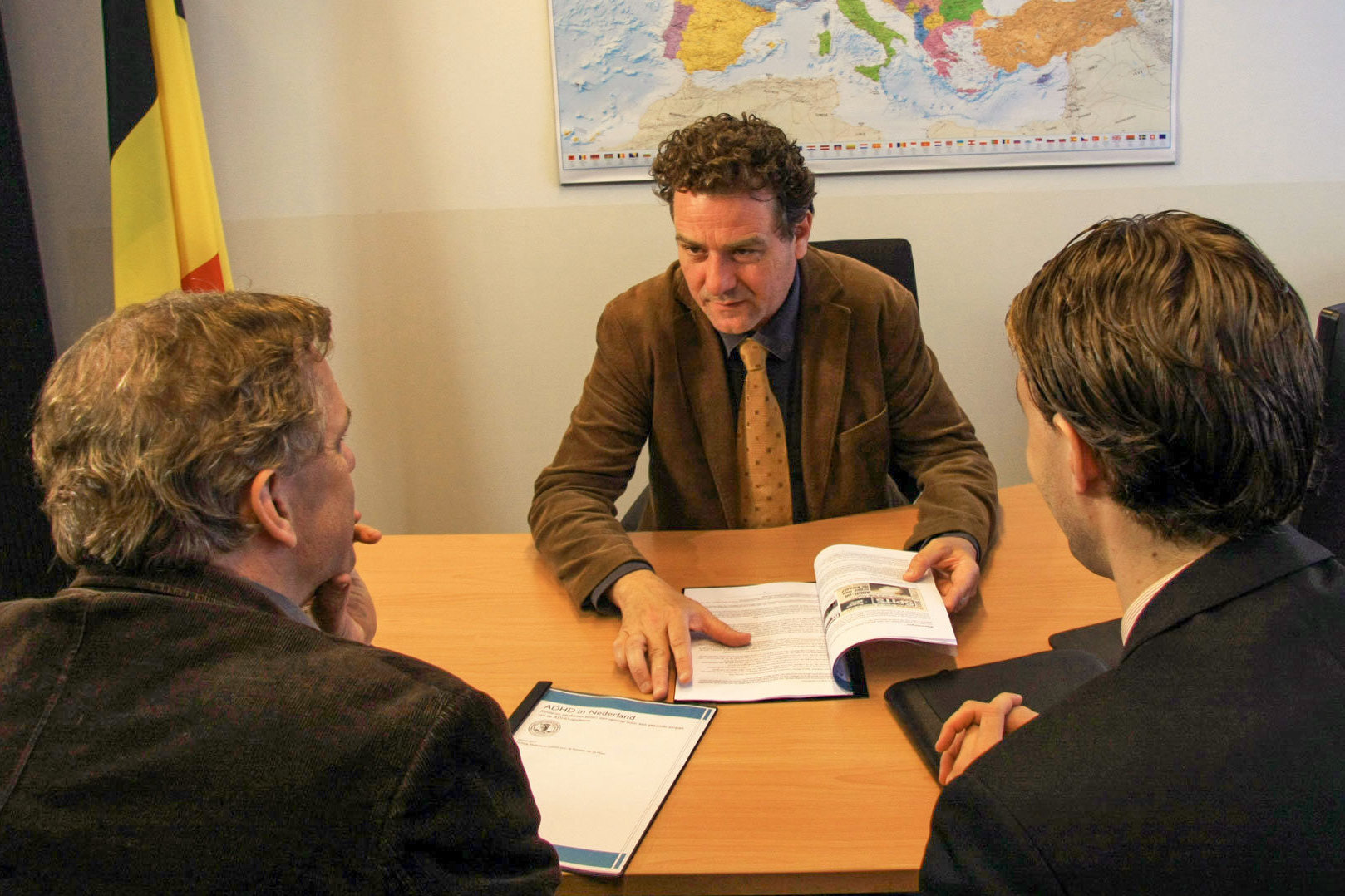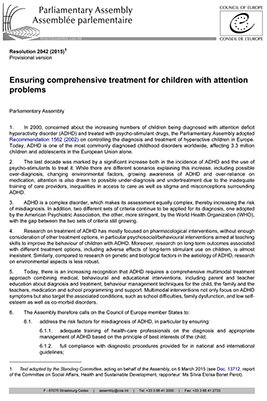ADHD EXPOSED IN EUROPE
Council of Europe Reviews a Longstanding Resolution

Attention Deficit Hyperactivity Disorder (ADHD) is one of the most commonly diagnosed so-called childhood “disorders” worldwide, more often than not leading to a prescription for psychostimulants to “treat” it. In Europe alone, 3.3 million children and adolescents are so labeled, with the past decade marked by a significant increase both in ADHD diagnoses and the use of psychoactive drugs. These drugs come with serious side effects including addiction, cardiac arrest, stroke, suicidal ideation, violent behavior, hallucinations and even death.
But what about this diagnosis of ADHD that even its founder, psychiatrist Leon Eisenberg, admitted was a fraud. While the number of children diagnosed with ADHD rises exponentially, the diet for many has conversely greatly deteriorated. Bad nutrition has been linked to bad behavior. One study in Holland found that 62% of children diagnosed with ADHD greatly improved within three weeks of a simple change of diet. Meanwhile, such bodies as ZitSit (Sit quiet) in Belgium, a treatment center for ADHD, admits “there is no medical or psychological test in existence which can show whether one has ADHD or not.”

In 2002, the Parliamentary Assembly of the Council of Europe (PACE) issued recommendations on finding non-medical alternatives to the diagnosis and the drugging of children to handle “ADHD.” However, in 2003 the Committee of Ministers refused to implement the measures to protect children from over-drugging. Citizens Commission on Human Rights (CCHR) Europe knew this could spell disaster for Europe’s children and has fought for the past 11 years to reverse the resolution and open the eyes of Europe and PACE to this fraud perpetrated on children and the abundance of alternative solutions to helping them with their difficulties.
CCHR Europe met with and enlightened more than 50 Members of Parliament on the truth about ADHD and child-drugging. One Norwegian MP, Karin Woldseth, after coming to understand the truth behind so-called “ADHD” and the effects this has on a child’s well-being, tabled a motion for a new resolution against child drugging. The resolution states that a non-drug approach is to be used for assisting children. A rapporteur was assigned to look further into the matter.
CCHR Europe met with members of the PACE Committee and provided them with extensive evidence detailed in reports to the United Nations Committee on the Rights of the Child (UNCRC) that CCHR had filed in many European countries, along with other materials exposing the fraud of ADHD and the dangers of psych drugs for children.

The Parliamentary Assembly of the Council of Europe issued a resolution stating that European governments “should address the risk factors leading to misdiagnosis of ADHD, including by ensuring adequate training of health-care professionals and full compliance with diagnostic procedures.”
CCHR chapters across Europe added their voice to the cause, raising awareness through massive media, demonstrations, and placing the Psychiatry: An Industry of Death exhibit throughout Europe.
The resolution was reviewed thoroughly by the PACE’s Social Affairs, Health and Development Committee and approved by the full Parliamentary Assembly of PACE. It went against the 2003 actions of the Committee of Ministers, stating that there is a misdiagnosis of ADHD and that other solutions need to be used to address children’s attention, not drugs. It also includes an amendment that strengthens its viability by tying it to the UNCRC Recommendations against the diagnosing and drugging of children.
While media ran across Europe, PACE issued its own release stating that, “According to the Assembly, meeting today in Paris at the Standing Committee level.... Parliamentarians said European governments should address the risk factors leading to misdiagnosis of ADHD, including by ensuring adequate training of health-care professionals and full compliance with diagnostic procedures.”
It also stated the psychostimulant drugs should not be used unless all other possible avenues have been exhausted including “psycho-social treatments as well as other nonpharmacological treatments.”
PACE also noted that there is a misconception that a child’s attention difficulties can “only be treated with medication” which “should be combated by raising awareness among families and teachers, as well as clinicians. More research should be carried out with regard to different treatment options.”
The Parliamentary Assembly of the Council of Europe has sent a clear message through their resolution in regards to the dangers of psychopharmaceutical drugs and the alarming increase in ADHD diagnosis, while laying out the many alternative treatments to care for a child’s well-being and future.
The final resolution was sent to all 47 member countries of the Council of Europe for their implementation.
RESTORE HUMAN RIGHTS TO MENTAL HEALTH
As a nonprofit mental health watchdog, CCHR relies on memberships and donations to carry out its mission to eradicate psychiatric violations of human rights and clean up the field of mental health. To become part of the world’s largest movement for mental health reform, join the group that has helped enact more than 170 laws protecting citizens from abusive mental health practices.


